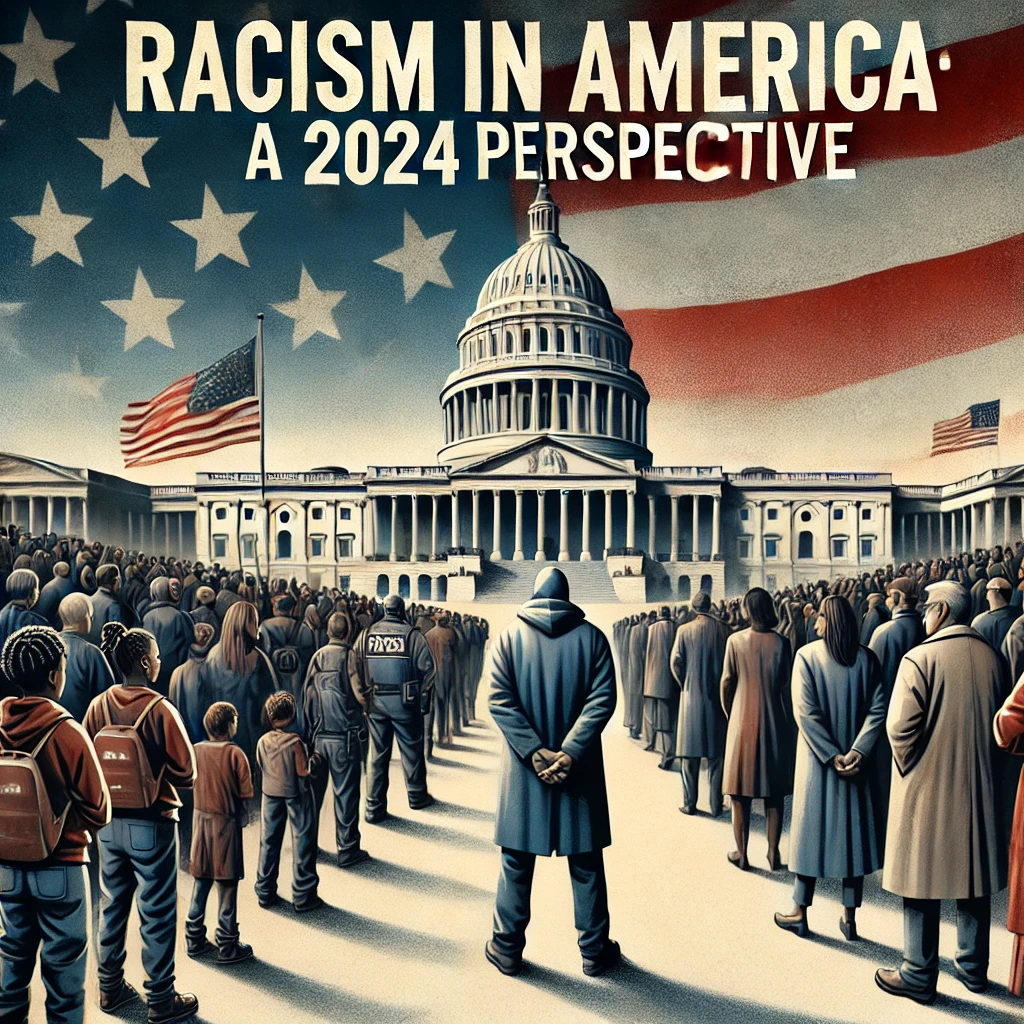Racism in America: A 2024 Perspective – Unveiling Hard Truths and a Path Forward
Racism remains one of the most persistent and polarizing issues in American society. Despite decades of civil rights movements and progress, disparities in wealth, education, healthcare, and justice systems still reveal systemic inequities. The newly released report, “Racism in America: A 2024 Perspective,” provides a deep dive into these realities, backed by comprehensive data and firsthand accounts. It’s a critical read for anyone committed to understanding and addressing the roots of racial inequality in the United States.
In tandem with recent headlines, this report synthesizes new insights into systemic racism, hate crime trends, and ongoing efforts to create a more equitable society. Let’s explore the highlights of this report and contextualize them within the latest news, underscoring why this is a must-read.
The Data Speaks: Disparities Persist Across Society
One of the most compelling aspects of the report is its reliance on hard data to illuminate the lived realities of racial discrimination. For instance, according to the FBI’s 2023 data, over 52% of hate crimes were motivated by racial bias. This stark figure underscores how racism continues to manifest as violence, threatening the safety and dignity of minority communities. A recent Reuters headline corroborates this, noting a rise in hate crimes in 2023 despite an overall drop in violent crime.
Equally striking are the findings from the Kaiser Family Foundation (KFF) on healthcare disparities. Black Americans are disproportionately affected by poor health outcomes, with systemic racism contributing to barriers in accessing quality care. From higher maternal mortality rates to unequal treatment in healthcare settings, the report reveals how racism is a public health crisis. A CDC report on racial health inequities echoed these concerns, calling for urgent policy reforms to address structural health barriers.
The Racial Wealth Gap: A Cycle of Disadvantage
Economic inequality is another pressing issue addressed in the report. The median wealth of Black families remains a fraction of that of White families—a disparity that has persisted for decades. According to the Pew Research Center, the median wealth of Black households is just 17 cents for every dollar held by White households. This gap reflects systemic barriers, including discriminatory lending practices, wage disparities, and limited access to generational wealth.
Recent headlines add a sense of urgency to this discussion. A Brookings Institution article highlighted how racial economic disparities have become a focal point in the 2024 presidential election, with candidates sparring over policies to address wealth inequality. Yet, as the report emphasizes, meaningful progress requires more than political promises; it demands actionable strategies to dismantle structural barriers.
Education and the Justice System: Two Sides of the Same Coin
The report also examines how racism affects education and the justice system, creating a vicious cycle that traps many minority communities. While there’s been an increase in diversity in higher education, as noted by the American Council on Education’s (ACE) 2024 report, significant disparities in graduation rates and post-graduation opportunities remain. Systemic issues like underfunded schools in predominantly Black neighborhoods further perpetuate inequality.
Meanwhile, the justice system continues to overrepresent Black Americans in prisons and jails. Human Rights Watch has called this a glaring human rights concern, emphasizing how policies and practices disproportionately target minorities. A recent Supreme Court decision allowing racial gerrymandering has sparked widespread criticism, further highlighting how systemic racism can erode democratic principles.
Progress and Challenges: A Dual Narrative
It’s not all bleak. The report acknowledges the strides made in addressing racism, including efforts by the Biden administration to promote racial equity through initiatives like the Racial Equity Progress Report (2024) by the Treasury Department. These measures aim to address disparities in investment, housing, and employment opportunities for minority communities.
However, as the Edelman Trust Barometer’s special report on racial justice reveals, public trust in institutions remains low, largely due to perceived inaction or slow progress. Bridging this trust gap requires sustained commitment, transparency, and accountability from both government and private sectors.
Why You Should Read the Report
This report isn’t just a collection of statistics and academic findings; it’s a call to action. It weaves together data, firsthand accounts, and expert analysis to paint a comprehensive picture of racism in America. It challenges readers to confront uncomfortable truths and equips them with the knowledge needed to advocate for change.
The recent news headlines—rising hate crimes, healthcare inequities, racial wealth gaps, and gerrymandering controversies—only add urgency to the report’s findings. These issues affect all Americans, whether directly or indirectly, and demand collective action.
What Can You Do?
Reading this report is a critical first step in understanding the depth and breadth of racism in America. But knowledge alone isn’t enough. Here’s how you can get involved:
1. Stay Informed: Follow credible sources like Pew Research, Human Rights Watch, and the CDC for ongoing insights into racial equity.
2. Advocate for Policy Change: Support initiatives that address systemic inequities, such as criminal justice reform, healthcare equity, and economic empowerment programs.
3. Engage in Dialogue: Start conversations in your community about racism and what can be done to combat it.
4. Hold Institutions Accountable: Demand transparency and action from government agencies, corporations, and educational institutions.
Conclusion: A Path Forward
“Racism in America: A 2024 Perspective” is more than a report—it’s a roadmap for understanding and addressing one of the most pressing challenges of our time. By synthesizing data, expert opinions, and real-world examples, it provides a framework for meaningful action. Coupled with recent news headlines, it offers a timely reminder of the work that remains.
Now is the time to act. Dive into the report, share its insights, and join the movement toward a more equitable and just America.






Leave a Reply